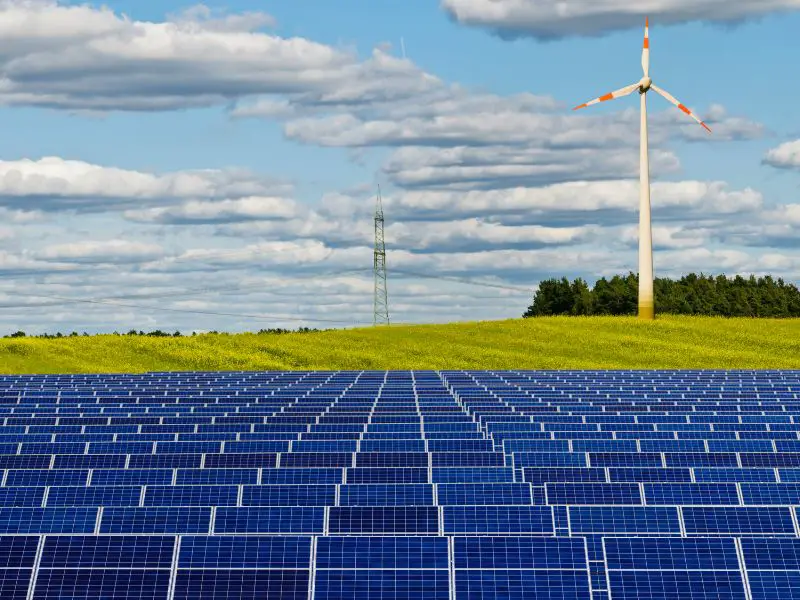From the outcry against the practices of many fast fashion brands to the announcement by investors like Blackrock’s Larry Fink that they will sell shares in the worst corporate polluters to support the goal of net-zero carbon dioxide emissions by 2050, sustainability is increasingly present in all facets of society.
But what is sustainability, and why is it essential?
Often misinterpreted, when people hear the word “sustainability,” they automatically think of renewable energy sources and cutting down on carbon emissions.
However, sustainability is not only a buzzword, nor is it merely about environmentalism.
Sustainable practices not only safeguard the environment, but sustainability also covers economic development and social fairness. In this article, we’re taking a good look at economic sustainability.

Is Economic Sustainability a Myth?
We can calculate how far we are from achieving a globally sustainable economy. To do this, we must evaluate the proportion of people living below the minimum standard.
This data varies from country to country. In terms of emerging economies, the International Poverty Line establishes a floor of $2 per day as the poverty threshold. Both the UK and the US decide on their own goals:
- The United States: About 15% of people live below living standards.
- The United Kingdom: About 14% of people live below the living standard.
- India: About 76% of people live below living standard.
- China: About 36% of people live below living standard.
Considering the figures above, the world is far from economic sustainability, based on our current working system.
It may be impossible for emerging nations like India and China to catch up to developed countries in terms of average GDP per capita. Ironically, the environmental impact of sustaining everyone above the poverty line would be very challenging to the environment.
Today, we can’t have a sustainable economy with how we do things now, which is used to provide a minimum standard of living. Our economy and the way we live must change for us to have a sustainable economy.
We need to use our resources more efficiently, find new ways to use resources that aren’t being used now, and cut down on how much we employ in the process.
Examples of Economic Sustainability
These are economically sustainable technologies that revolutionize the traditional system and propel us to a new brighter future.
1. Alternative Energy
Alternative energy sources like wind, solar, and hydropower can help meet the world’s energy needs in a more sustainable, clean, and cheap way. Currently, most of the world’s energy comes from fossil fuels like coal, oil, and gasoline, which are limited in supply and release greenhouse gases.
Alternative energy sources rely on natural processes or resources that can be used repeatedly. This may make them more sustainable and cheaper in the long run.
2. Sustainable Agriculture
More and more farmers worldwide are using sustainable farming methods to stop soil erosion caused by over-farming and reduce animal product use. Focusing on regenerative farming and eating less food can help improve the health of the soil, crop yields, and the quality of farmed food and resources.

3. Cryptocurrencies and Blockchain Technologies
Cryptocurrencies are digital assets that live on the blockchain. A blockchain is decentralized or not controlled by a single organization and a publicly available digital ledger. Cryptocurrencies and blockchain technology can promote economic sustainability through the following behaviors and procedures. Here’s how:
- Crypto as a hedge against inflation. Unlike fiat currencies, which are susceptible to inflation, cryptocurrencies may be used as a hedge against inflation.
- Creating a public record of financial transactions. While users of cryptocurrencies are anonymous on the blockchain, transaction data remain a part of the ledger, boosting the transparency of financial transactions and possibly solving financial inequity.
- Performing practical functions: Numerous cryptocurrencies have practical purposes, such as monitoring items throughout the supply chain, validating product legitimacy via digital signature, and making value accessible to low-income countries or regions.
- Decentralized ledger technology: The decentralized nature of blockchain makes it more transparent and reliable than centralized forms of record keeping, which are more susceptible to hacking and other issues such as data manipulation and collusion.
- Blockchain-based startups: The increased use of blockchain has given birth to numerous environmental startups around the world. Decentralized applications and smart tokens that give blockchain users ownership over digital information are also available for businesses seeking a different way of collecting and processing data.
4. Recycling and Reduction of Pollution
Waste disposal is a big problem for the planet. Recent statistics suggest that mountains of plastic waste are floating in the oceans. These mountains of plastic waste turn into microplastics when exposed to the ocean’s warm temperatures, enter the food chain, and contaminate marine life.
Recycling and reusing materials may reduce the amount of waste created by production and manufacturing. By focusing on long-term recycling and recycling programs, we can all do our part to reduce the amount of waste generated by society today.

The use of plastics is an example: If everyone used less plastic, it would result in less waste in landfills and lower costs for waste management companies.
The Importance of Economic Sustainability
Economic sustainability is essential because it is the foundation for the long-term expansion of the economy.
Economic sustainability aids in protecting the environment, enhancing the quality of life of people, and creating employment. It also aids in boosting corporate productivity and reducing waste, hence fostering corporate social and environmental obligation and accountability.
Bottomline
Economic sustainability is an integral part of sustainability at all levels: social, political, environmental, and economic. Economic growth cannot be considered sustainable if there is no ecological cost and no concern for the welfare of people living in poverty. Economic sustainability is not so much a goal or a plan as it results from how the economy works—which is determined by laws, institutions, culture, and technology.
A sustainable economy is not a myth.
Economic sustainability is achievable once we become aware of our behavior and how it affects the economy and the environment.
Consider these sustainable practices that can help you lead a more sustainable lifestyle.


3 thoughts on “How to Achieve Economic Sustainability: Top 4 Strategies and Solutions”